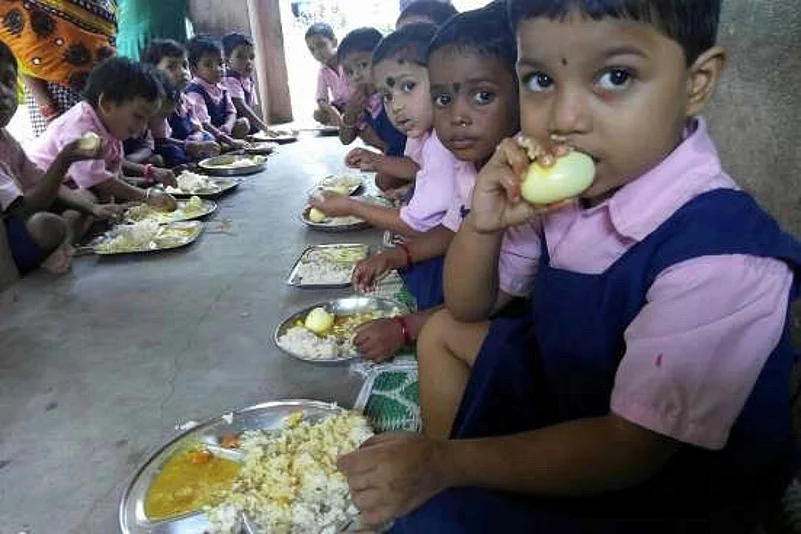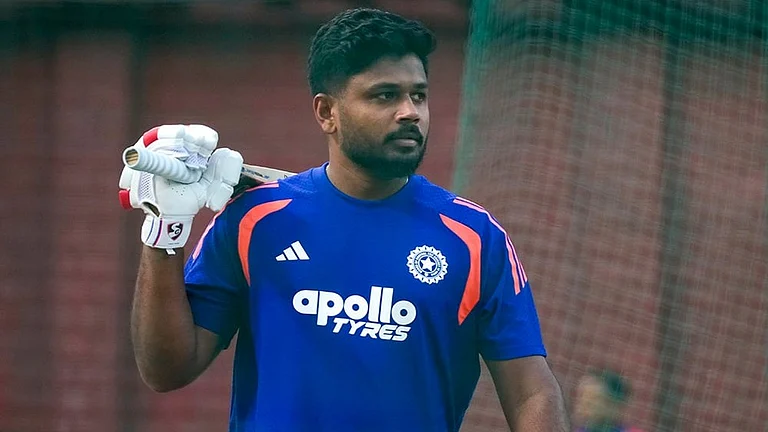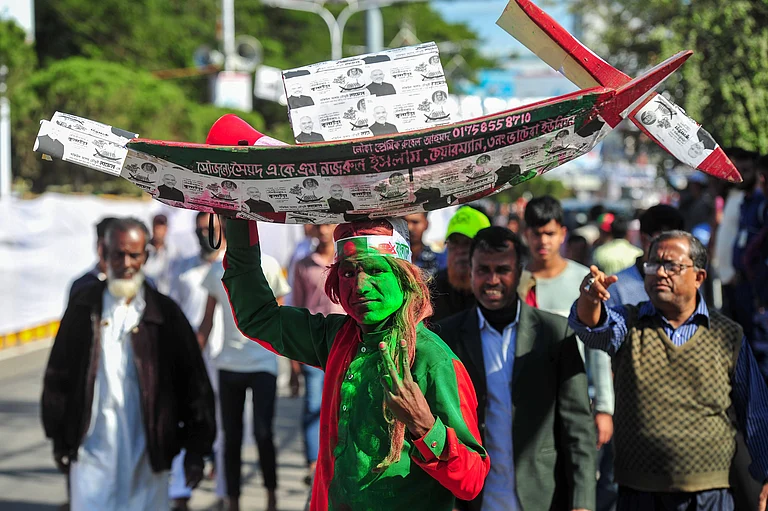The Odisha government has launched several schemes, like the Millets Mission and Iron Plus Initiative, to boost nutrition among the people, especially children and the tribal population, and the state must work to ensure that none is left out from the Poshan Abhiyaan, an expert has said.
Ranglal Jamuda, Chairperson, Odisha State Food Commission, said while implementing the schemes at the level of Mid Day Meal Scheme (MDMS), Integrated Child Development Services (ICDS) and the Anganwadi Centres, one should ensure that every child is covered.
“While implementing the Mid Day Meal Scheme, there should be no difference in the matter of whether the child is in a government school or not. There is also no system to find out who needs a normal dose of nutrients and who needs a double dose,” Jamuda said at a recent Agri-Nutrition event here.
He said the Auxiliary Nurse Midwife (ANM) visits the homes of villagers once a month under the Village Health Nutrition Day (VHND) and attends to pregnant women and lactating mothers to provide iron and folic acid supplements, but the adolescent girls - who are the future mothers - get left out.
He outlined that under the National Food Security Act 2013, three important schemes, the Targeted Public Distribution System (TPDS), the Mid Day Meal Scheme and the ICDS, are being implemented and being monitored by the Commission. The TPDS has 80 percent coverage in Odisha, while the MDMS is restricted to government-run schools and children in other schools are not covered. The MDMS is also implemented till Class 8, and the rest of the children are left out, he pointed out.
The ICDS attends to infants between 0-6 months, and to pregnant women and lactating mothers, but all women don’t go to these centres to avail of the nutritious food and supplements.
“There are many social taboos and misbeliefs that come in way of people availing of the schemes,” he added.
Elaborating on other schemes, he said the Odisha government has launched the Mamata scheme under which pregnant women registered with Anganwadi centres receive Rs 5,000 in four instalments through bank accounts. The women get the cash assistance every three months. Other schemes are the Pradhan Mantri Matru Vandana Yojana (PMMVY) and the Pension Scheme. “Nutrition security should come along with food and financial security,” he emphasised.
“Nutrition means ingestion, digestion, absorption and utilization of food,” the official said, and added that double fortified salt, with iron and iodine, is being provided to the people.
Besides salt, he said that milk is also being fortified by the Odisha State Cooperative Milk Producers Federation (OMFED), and oil is also being fortified. While earlier only Vitamin A was being added, now milk and oil are being fortified with Vitamin D too. Fortification of staple crop like rice and wheat and also millets is being undertaken, with iron, zinc, Vitamins including A, B1, B12 and others, Jamuda said.
Odisha has also launched the state Millets Mission and the National Iron Plus Initiative under which the people of the state are being provided nutrition.
The key Vitamin K that helps the body by making proteins for healthy bones and tissues is also being provided, and the government is hopeful of 100 percent coverage, he said.
Calcium supplements are also being provided to pregnant and lactating mothers. The state Millets Mission, set up in April 2017, has now been expanded to 72 blocks across 14 districts covering 29,000 farmers and 12,334.6 hectares, he said. In 2018-19, 18,000 quintals of millets were procured.
“Introducing millets in the Mid Day Meal Scheme has proved to be a win-win situation,” he said, adding that millet ladoos were going a long way in providing nutrition to the people.
One kg of ragi is being included in the 5 kg entitlement under the PDS to people, he added.
He enumerated the Swachh Bharat, Pension Scheme, the Mahatma Gandhi National Rural Employment Guarantee Act and the Forest Rights Act as other important schemes meant for the benefit of the people.
Referring to the Supreme Court’s February 13 order asking 21 states to evict nearly 11.8 lakh forest dwellers whose claims were rejected, he said the fact that the forest dwellers were going to be evicted was “unthinkable”. The court has given the states time till July 12 to respond to allegations that the rate of rejection of claims was very high.
The Odisha government is also working to reduce the prevalence of sickle cell anaemia in 12 high-prevalence districts in the western region. In order to eliminate sickle cell anaemia that kills hundreds of children, the state government has inked an agreement with Christian Medical College Vellore, he said.
Jamuda said the government was also working under the UNICEF sponsored ‘Jeevan Sampark’ project to improve the health and nutrition status of children, adolescents and women among Particularly Vulnerable Tribal Group communities using the social and behavior change communication (SBCC) and demand generation approach.


























